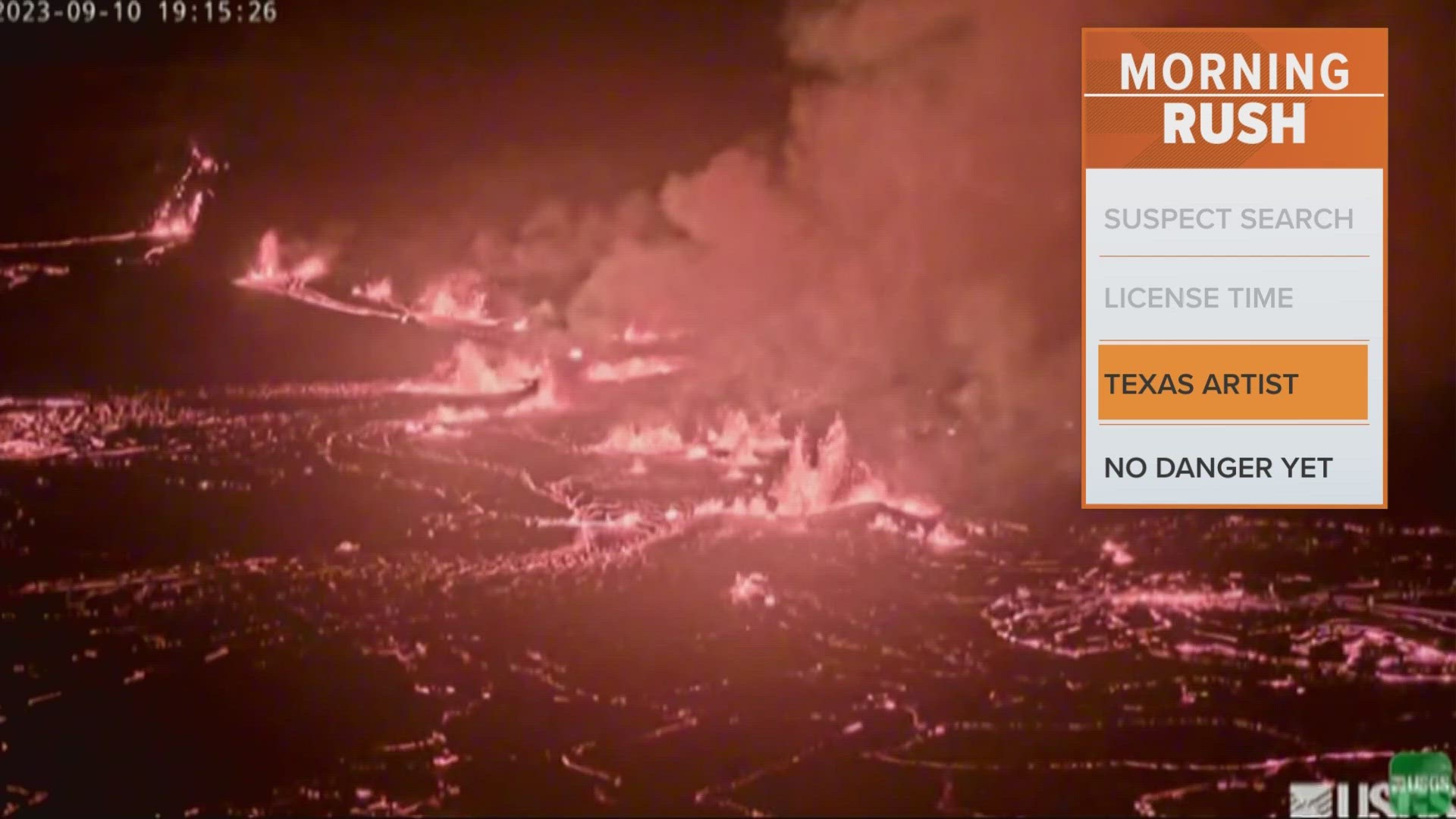HONOLULU — Kilauea, one of the most active volcanoes in the world, began erupting after a two-month pause, displaying glowing lava that is a safe distance from people and structures in a national park on the Big Island.
The Hawaii Volcano Observatory said the eruption was observed Sunday afternoon at the summit of Kilauea. Images released of the volcano show showers of molten lava spraying upward in geysers from the bed of cooled magma on top of the volcano, as well as glowing cracks at night indicating the superheated rock underneath.
The observatory said gases released by the eruption will cause volcanic smog downwind of Kilauea. People living near the park should try to avoid volcanic particles spewed into the air by the eruption, the observatory said.
The volcano’s alert level was raised to warning status and the aviation color code went to red as scientists evaluate the eruption and associated hazards.
In June, Kilauea erupted for several weeks, displaying fountains of red lava without threatening any communities or structures. It was the latest eruption after a three-month hiatus for the volcano — one of the most active in the world. Crowds of people flocked to the Big Island’s Hawaii Volcanoes National Park, which offered safe views of the lava.
The volcano erupting could bring some much-needed tourism to Hawaii. The island of Maui was devastated by deadly wildfires that killed more than 100 people. The fires destroyed the tourism-driven community of Lahaina, and local leaders say they're worried that without tourists there will be financial hardships as the area recovers.
Kilauea, Hawaii’s second-largest volcano, erupted from September 2021 until last December. A 2018 Kilauea eruption destroyed more than 700 homes.

